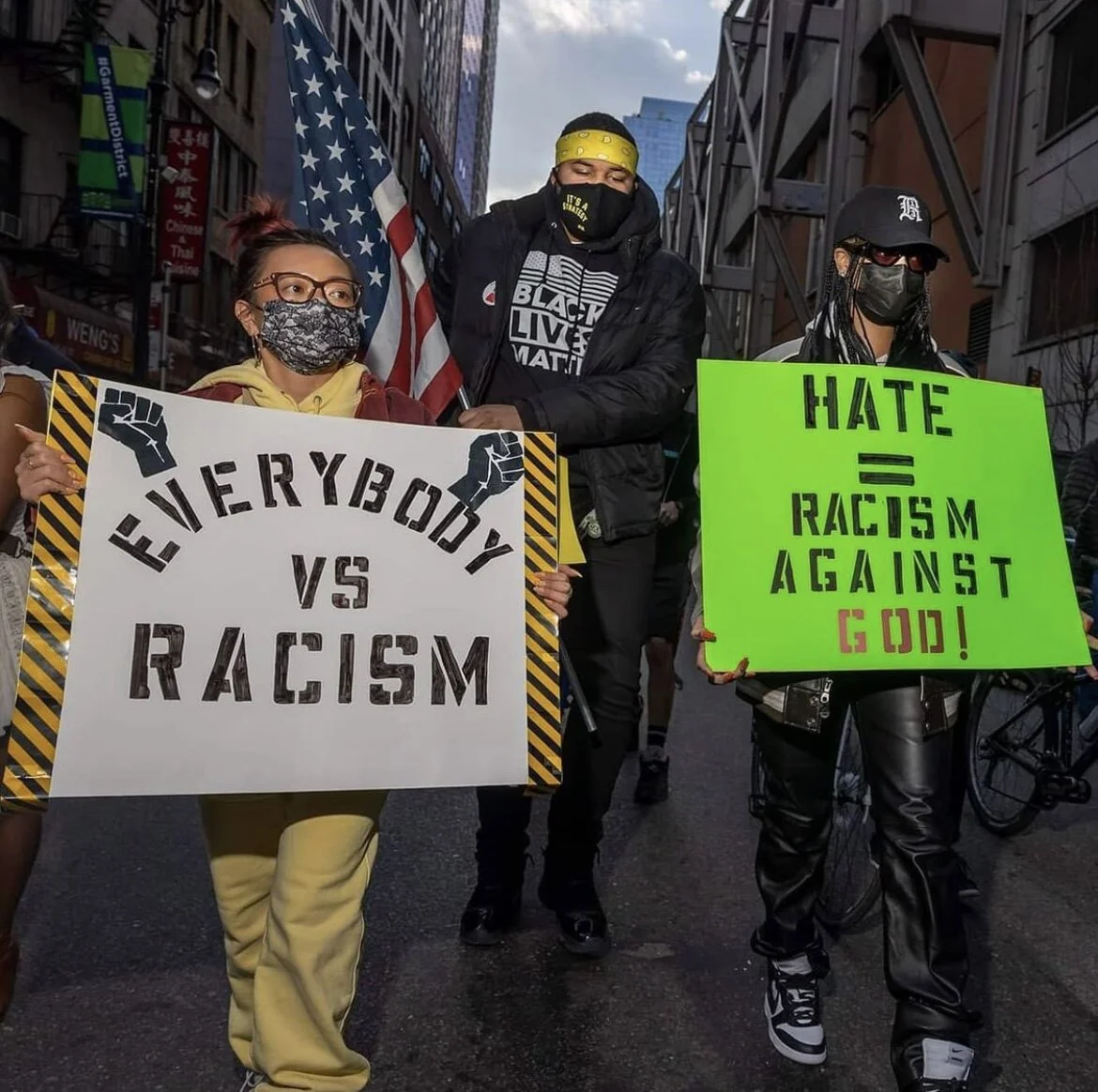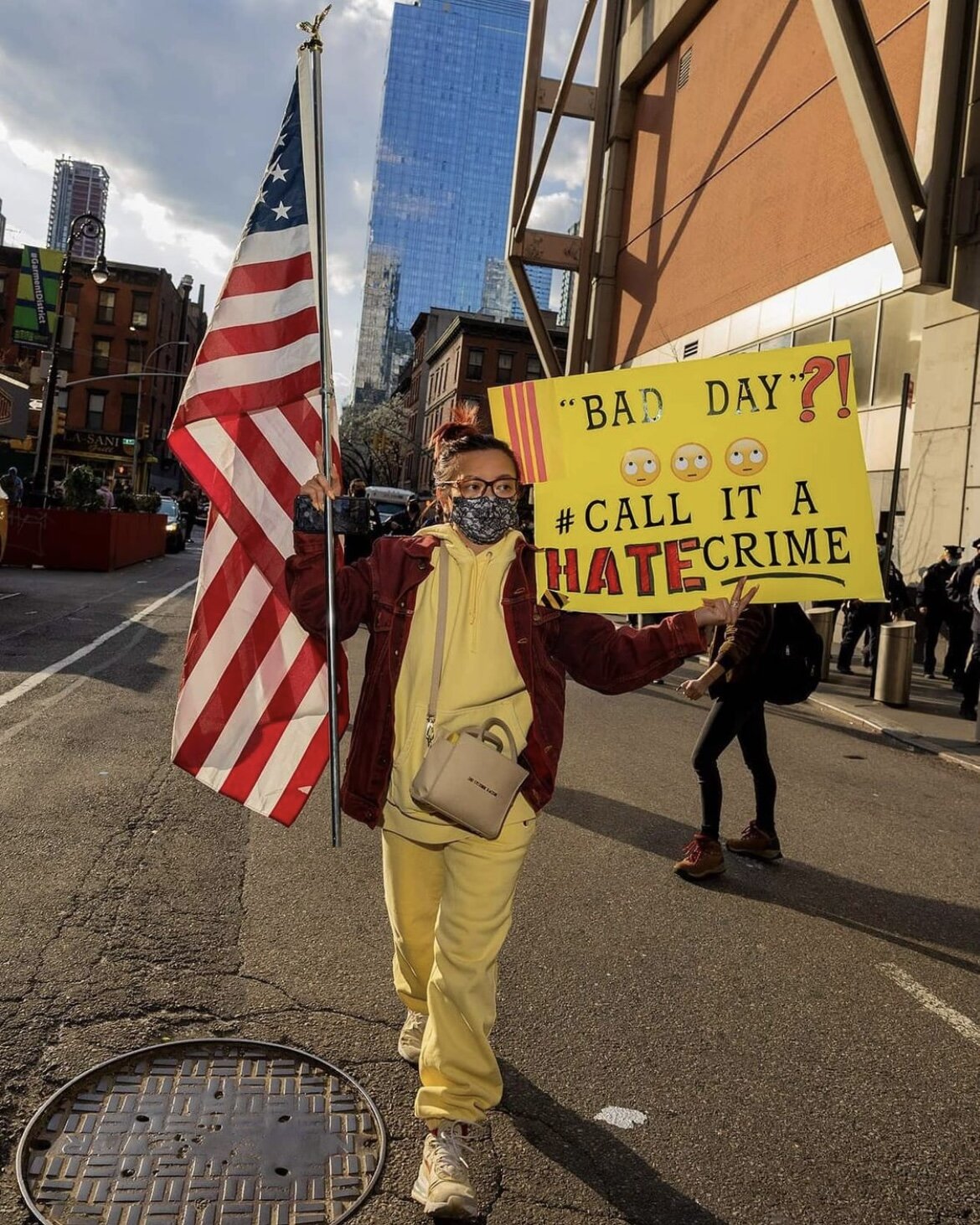The Call to End AAPI Hate is Late
Rihanna joins NYC protest. Photos by Alvery GuilerOne year after Covid-19 was declared a national emergency anti-Asian hate crimes are soaring. While these acts are nothing new (see: Japanese internment camps in the 1940s, spiking hate-crimes against Muslims or people of South-Asian descent perceived to be Muslim post 9/11), a recent study by Stop AAPI Hate shows they’ve increased by 150% since the start of the pandemic. The coalition, which tracks violence against Asian-Americans, reported 3,795 instances of prejudice within the past year including verbal abuse, physical harassment, and workplace discrimination, amongst other forms of bias.
The spike in attacks was stoked by the previous president carelessly touting the virus as the “China virus,” “Wuhan virus,” and the “Kung Flu” from the very start. In an already tense time, instead of using the struggles many faced since the pandemic reared its ugly head as a means to join together and empathize, we instead see division and growing misguided violence.
On March 16th a 21-year-old man killed eight people at a series of Atlanta spas, six of them Asian-American women. In the wake of the rampage, many took their frustration and anger to protests held throughout cities from San Francisco to New York. Similarly, “Stop Asian Hate” vigils were held to honor victims the Saturday after the shooting.
The police stated the shooting was not racially motivated. To add insult to injury a Cherokee County captain and spokesman said the shooter had “a really bad day,” igniting outrage at what appeared to be a display of sympathy for the suspect.
The tepid response from the leadership that’s meant to keep us safe is a symptom of a larger problem: the lack of acknowledgement that the growing hate crimes against the Asian-American community are exactly that — hate-spewing, racially motivated acts of violence.
Another attack in the slew of physical assaults was the beating of a 68-year-old Sri Lankan man who was aboard a New York City subway on his way to work on the afternoon of Friday, March 19th. According to a witness, the perpetrator said, “You. You Asian mother******,” before escaping through the subway doors after assaulting the victim. This is just one of many incidents across the country of elderly Asian-Americans being pushed, hit, and verbally abused.
Also in March, in a turn of events in San Francisco, one elderly Asian woman fought back after being randomly attacked by a 30-year-old man. Her self-defense resulted in the assailant being sent to the hospital, but not all victims have the capacity or the wherewithal to defend themselves, nor should they have to in the first place.
Many people have condemned the flagrant hatred and attacks in the weeks since the Atlanta killings. Doormen at a luxury apartment building in New York City were recently fired for failing to help an Asian-American woman who was assaulted on March 29th. Celebrities and everyday civilians alike have raised their voices against the senseless behavior. It doesn’t suffice.
It will take much more than paying overdue lip-service in response to the uptick in hate crimes to ensure the safety and protection of all Asian-Americans. The lack of adequate media reporting until nearly a year after the pandemic began sends a very clear and chilling message to Asian-Americans: you don’t matter. As CNN journalist Connie Chung stated, “We have been miserably late. We are insignificant, and it’s so apparent to all of us who are Asian.”
Currently, hate crimes are likely underreported because law enforcement agencies are given the option to report the data for their annual crime report. Some Asian-Americans who encounter violence or abuse face a barrier due to language, fear, and doubt of being truly advocated for and protected. Furthermore, the criteria for categorizing violence as a hate crime is narrow. Unless the antagonist verbally uses hateful language, motives for the crimes remain ambiguous to law enforcement. To undercount hate crimes is to erase them, and it sends a message that those with the duty to protect don’t need to treat crimes against all people the same way.
Solidarity is a start, but we need real tangible changes in policy to hold perpetrators accountable and ensure everyone’s safety. There’s been enough grief and loss since the start of the pandemic; to add hate, division, and to place wrongful blame on certain members of our society further fuels the fire. It needs to be stomped out once and for all.
Transportation resource for Asian-American women in NYC: @cafemaddycab
Transportation resource for Asian-American women in San Francisco/Bay Area: @calikyecab
Bystander Intervention Training: @ihollagram


